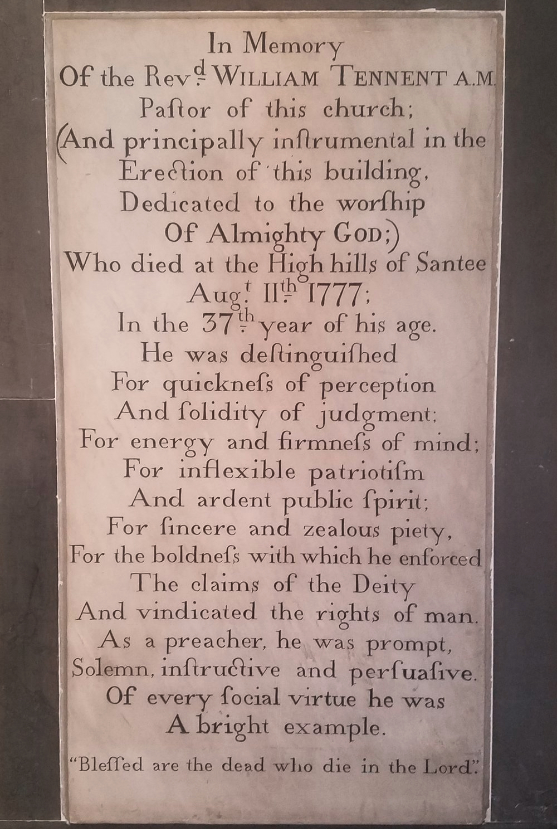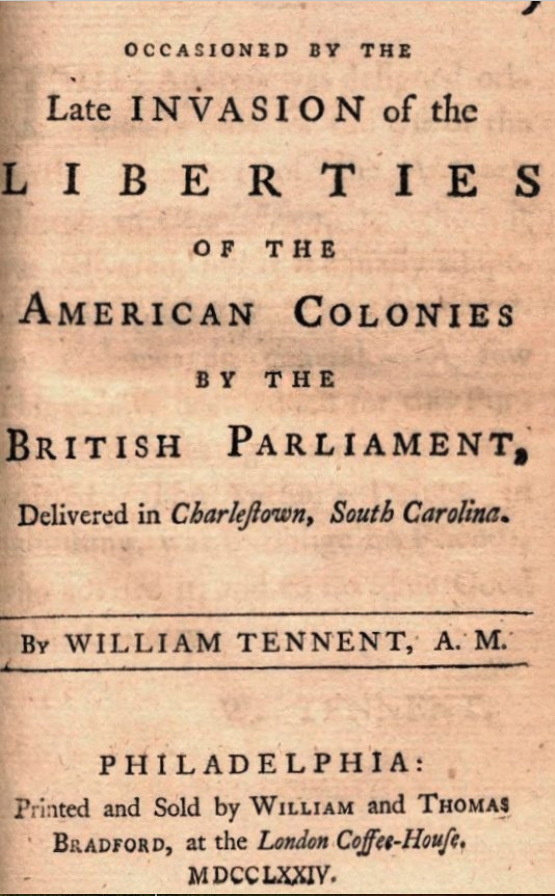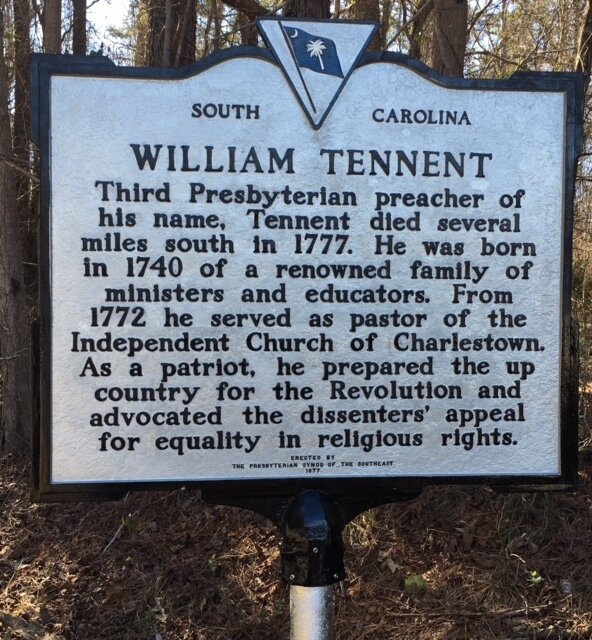WILLIAM TENNENT III
(1740 - Aug. 11, 1777)
"A Brief History of the Circular Church." circularchurch.org.
William Tennent III was a Presbyterian minister, American Patriot, and South Carolina politician who advociated for equality among the Christian denominations. Born in Freehold, N.J., he graduated from the College of New Jersey (now Princeton University) in 1758 and earned a master's degree from Harvard University in 1763.
Ordained in 1762 by the Presbytery of New Brunswick, he married Susan Vergereau in 1764 and and the couple had five children. He ministered in several New England cities before moving to Charles Town in 1772.
Tennent spent the last five years of his life as minister of Charles Town's Meeting House for dissenters (today Circular Congregational Church).
Here he openly opposed British colonial policy after 1773 and published essays supporting the Patriot cause after passage of the Tea Act and Intolerable Acts. In 1775, he and a Baptist colleague traveled into South Carolina's back county seeking to convert Loyalists, many of whom were also Presbyterian, to the American cause. An effective speaker, Tennent enlisted more than 400 men for the South Carolina militia over a three-day period, earning him the moniker the "Firebrand Parson".
An interdenominational meeting elected Tennent on April 27, 1776, as their representative in the state's newly established assembly to lobby for religious freedom. The constitution adopted that year, however, while renouncing the Church of England, continued to supporrt Anglicanism as the state religion.
On Jan. 11, 1777, Tennent addressed the assembly , "praying for a Constitutional Recognition of the Equal Rights of all Religious Denominations," according to an article in the December 1953 Journal of the Presbyterian Historical Society. He demanded an end to any state-established religion and financial support by government given to churches.
He later supported the state's 1778 Constitution, which moved in that direction by establishing Christianity as the state religion and afforded equality to all Christian denominations.
Tennent died Aug. 11, 1777, of a fever he caught as he accompanied his recently widowed mother from New Jersey to South Carolina. A historical marker was erected near the site of his death in Sumter County on Highway 261 that reads:
"Third Presbyterian preacher of this name, Tennent died several miles south in 1777. He was born in 1740 of a renowned family of ministers and educators. From 1772 he served as pastor of the Independent Church of Charleston. As a Patriot, he prepared the up country for the Revolution and advocated the dissenters' appeal for equality in religious rights."
Tennent is buried at the Unitarian Church, just a short distance from the Meeting House and which was formed by the Society of Dissenters who needed more space and built a second building to complement the Meeting House. A commemorative inscription there reads:
In Memory Of the Rev William Tennent A.M. Pastor of this church; (And principally instrumental in the Erection of this building. Dedicated to the worship of Almighty God;) Who died at the High hills of Santee Aug 11th 1777; In the 37th year of his age. He was distinguished for quickness of perception and solidity of judgement; for energy and firmness of mind; for inflexible patriotism and for ardent public spirit; For sincere and zealous piety, for the boldness with which he enforced the claims of the Deity and vindicated the rights of man. As a preacher he was prompt, solemn, instructive, and persuasive of every social virtue he was a bright example.



